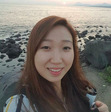Author’s Closing Remarks
The closing remarks from the book, Forgotten Reflections is one that I’ve gotten a number comments about so thought I’d share an excerpt from the essay. I hope that it will shed light on how the story took shape and my motivations behind the novel itself.
Author’s Closing Remarks
Why is the Korean War called the Forgotten War? It’s not that we forgot the war happened all together, nor did we forget it because not as many people died in the most gruesome and fashionable way possible in modern warfare.
Perhaps it is aptly named the Forgotten War because Korea had very little to do with why the war was fought in the first place. We were just caught in the middle of a story that is not our own, in an international dispute of those who deemed it more convenient that death and suffering are better contained outside their own borders.
Then again, that is an apt summation of our entire war history.
I’ve always thought the name of our country had some relevance to the topic at hand:
한국 (Hanguk): the nation of Han, or Korea
The Chinese root of the word “Han” has nothing to do with the phonetically identical words Han (one), or Han, the sorrow and suffering brought on by centuries of injustice that leaves our spirits aching. Yet, I wonder if Han (Korea), Han (one), and Han (such sense of injustice) are not one and the same, or at the very least, inextricably intertwined.
Han/ 한/ 恨 is defined as “A feeling of unresolved resentment against injustices suffered, a sense of helplessness because of the overwhelming odds against one, a feeling of acute pain in one’s guts and bowels, making the whole body writhe and squirm, and an obstinate urge to take revenge and to right the wrong—all these combined.” –Suh Nam-Dong (Yoo, 221)
We are not a nation of heroes. We are a nation of survivors who somehow made it out the other end and kept going, just waiting for the next bomb to drop. For a while, I wondered if we had all given up, stopped thinking about what we had fought for, or if we had fought for anything at all. We are all struggling and squirming towards an end that we have yet to figure out for ourselves. Sometimes, I fear we are a nation who has lost the ability to define ourselves.
In the two years it took to write this novel, I kept asking myself: what happens to a nation still fighting the same war three generations later—still fighting for the same reason for centuries on end? What does independence mean to a nation that has never known what it means to be its own nation?
I look at my grandmother and wonder what her generation would have to say to us before they all pass into history. All the more so because the Korea of my grandmother’s youth is nothing like the one I know, with barely any landmarks to show for her time in this world as The Miracle on the Han catapulted South Korea from a third world to a first world nation in less than four decades.
Once, I asked her what she thought about the American military presence in South Korea. She was neither thrilled nor hateful. “It is what it is,’ granny would say. They gave us democracy, but they too came and made us into their own image, like the rest of them. I guess that is what we do—morph so much that we don’t even realize this was never us to begin with.
This is just a story—one that imagines the world as I wish it were, or perhaps as I wish it weren’t.
I have two grannies, one who is just as opinionated, stubborn and loud-mouthed as Iseul. My other granny died a cripple, smiling because she had been beaten if she displayed any other emotion. I never knew this granny and I only know this by rumors whispered by my aunts and uncles. Sometimes, I feel the loss of something I never had in the first place. Perhaps the greater tragedy is never having known.
…
Reference:
Yoo, Boo-wong (1988). Korean Pentecostalism: Its History and Theology. New York: Verlag Peter Lang. p. 221.





